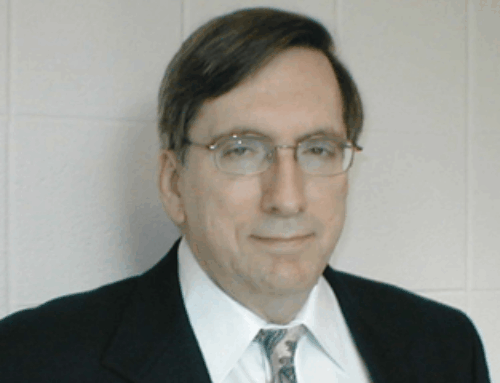WESTCHESTER, Ill.— May 1 kicks off Older Americans Month. This year’s theme is, “Older Americans: Making Choices for a Healthier Future.” As people get older, several aspects of their lives change, including their sleep patterns. While older adults need about seven to eight hours of sleep each night to maintain good health and optimum performance, many elders often get less sleep, mainly because they experience problems sleeping. While sleep patterns change as people age, disturbed sleep and waking up tired every day are not part of normal aging. The American Academy of Sleep Medicine (AASM) advises those who struggle with getting the sleep they need each night to see a sleep specialist.
Many adults often have more trouble falling asleep than persons in other age groups. A study of adults over the age of 65 found that 13 percent of men and 36 percent of women take more than 30 minutes to fall asleep.
Ralph Downey III, PhD, of the Sleep Disorders Center at Loma Linda University Medical Center in Loma Linda, Calif., says it is normal for our body clocks to change as we get older.
“Time stands still for no one. However, with aging, our body clock acts a bit differently. We are less apt to sleep for long periods of time at night than teenagers. Rather, sleep is less deep, and we tend to sleep for shorter periods of time at night, with an increased likelihood of napping in the daytime,” said Downey.
There are many possible explanations for these changes, says Downey. Older adults may produce and secrete less melatonin, the hormone that promotes sleep. They may also be more sensitive to changes in their environment, such as noise, and this may cause them to awaken. Further, older adults may also have other medical and psychiatric problems that can affect their sleep, says Downey, adding that researchers have noted that people without major medical or psychiatric illnesses report better sleep.
Dr. Downey referred to several studies published in recent issues of the journal SLEEP with some interesting findings about older persons and sleep:
- The effects of insomnia are different in older and younger people. While associations between insomnia and separated, divorced or widowed marital status were strongest in younger age groups, longer bouts with insomnia were more common in the older population, who are also more likely to be taking types of sedatives that have particular problems with addiction and side effects.
- As sleep quality and quantity typically decrease with age, objectively measured differences in the amount of sleep a healthy older man gets can affect his level of testosterone in the morning.
- A brief behavioral treatment for insomnia appears to be a promising intervention for older adults who suffer from insomnia.
According to Downey, some of the more common sleep disorders in the elderly include:
- Insomnia, the most common sleep complaint, which affects almost half of adults 60 and older.
- Obstructive sleep apnea (OSA), which can elevate the risk for high blood pressure, stroke, heart disease, and cognitive problems. Snoring, a symptom of OSA, is a very common condition affecting nearly 40 percent of adults, and is more common among older people.
- Restless legs syndrome, where one can experience uncomfortable feelings in the legs such as tingling, crawling or pins and needles. It affects more than 20 percent of people 80 years and older.
- Periodic limb movement disorder (PLMD), a condition that causes people to jerk and kick their legs every 20-40 seconds during sleep. One study found that roughly 40 percent of older adults have at least a mild form of PLMD.
Not sleeping well can lead to a number of problems. Older adults who have poor nighttime sleep are more likely to have a depressed mood, attention and memory problems, excessive daytime sleepiness, more nighttime falls, and use more over-the-counter or prescription sleep aids. In addition, recent studies associate lack of sleep with serious health problems such as an increased risk of obesity, cardiovascular disease and diabetes.
Dr. Downey advises those who have trouble sleeping to see a sleep specialist at a facility accredited by the AASM.
“Don’t assume it is just ‘Father Time’,” warned Downey.
For a listing of AASM-accredited facilities in your area, visit https://sleepeducation.org/sleep-center/.
AASM is a professional membership organization dedicated to the advancement of sleep medicine and sleep-related research.
To arrange an interview with an AASM spokesperson, please contact Jim Arcuri, public relations coordinator, at (708) 492-0930, ext. 9317, or jarcuri@aasm.org.
# # #




